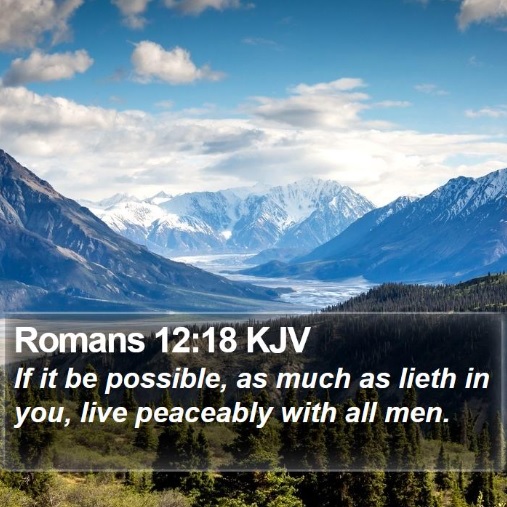“Go therefore and make disciples of all the nations…teaching them to observe all that I commanded you; and lo, I am with you always, even to the end of the age” (Matthew 28:19-20, NASB).
——————–
Contents
1) The Way of Peace (Jerry Fite)
2) Two Seas
3) How to Endure Hardship (2 Timothy) (Bryan Gibson)
——————–

-1-
The Way of Peace
Jerry Fite
If you are like many today, you are running here and making appointments there, living modern life with a frantic pace. Oh, if we could just stop our bodies from continual motion, rid our minds of all the clutter, and enjoy a moment of restful peace. It is not often today when such peace is enjoyed, and even more rare in this goal-oriented world is such “down” time possible.
Therefore, the thought of peace should be a welcomed diversion for our mind. However, upon examination of the peace revealed in Scripture, we see that it is not paired with an inactive mind. It is a conscientious, scrupulous, and demanding journey. We find it by actively walking in the way of peace.
The spiritual journey begins by knowing God and having peace with Him. Paul declares, “Destruction and misery are in their ways; and the way of peace have they not known: there is no fear of God before their eyes” (Romans 3:16-18). Knowing God and following His way of righteousness is essential in the way of peace.
The way of peace with God is only found in Jesus Christ. The one gospel message to all mankind: Jew and Gentile, provides peaceful reconciliation with God. Peter spoke with specificity of “The word which He sent unto the children of Israel, preaching good tidings of peace by Jesus Christ” (Acts 10:36). Receiving forgiveness of sins by obeying the Gospel, we enjoy a clean conscience, cleansed by the blood of Christ in baptism (Hebrews 9:14, I Peter 3:21). A cleansed conscience through knowing and obeying the Lord, gives us peace within. Jesus is our peace for He alone can bring all mankind together in peace before God (Ephesians 2:14, 17).
Once we enter the way of peace with God through Christ, we cannot grow lax in our walk. We must continually consider others. Because the kingdom of Christ is “righteousness, joy and peace” (Romans 14:17), we cannot allow our actions to cause others to violate their own conscience and forfeit their joy and peace with God. If our action, even if we believe we are free to do such, causes one to do that which is in doubt, then we cease to walk in love. Instead, we should be willing to forgo our liberties in such a context and “follow after things which make for peace, and things whereby we may edify one another” (Romans 14:19).
As we consider our way before God with others, we must strive to do what we can to have peace with our fellow man, while never compromising God’s revealed truth. Paul exhorts Christians, “If it be possible, as much as is in you lieth, be at peace with all men” (Romans 12:18). Regardless of efforts to seek and pursue peace with others, if the other person refuses to follow the same path toward peace, enmity will continue.
Jesus reminds us that sometimes peace will not be possible when such a course compromises the truth of God. Jesus affirms He did not depart from Heaven “…to send peace on the earth: I came not to send peace, but a sword” (Matthew 10:34). Jesus has in mind the spiritual warfare that occurs within families when Christ’s disciples follow Jesus, the true and living way. Persecution from, instead of peace with family members occurs when the way of darkness persists in hearts.
By trusting in God and putting Him first, we do not become distracted with anxiety over life’s necessities, for we know God will provide (cf. Matthew 6:33). In the way of peace, we do not fear death but face it with a mind void of fear. Why? Because we know the crucified and resurrected Christ, and trust in God’s Way (cf. Hebrews 2:13-15). The spiritual way of peace is not “down time,” but it does refresh the inner man so we can keep the fast-paced outer man in check and have a reflective moment in joy and peace with God.
— Via Glad Tidings, Volume XXXI, No. 44, October 24, 2021
——————–

-2-
Two Seas
This is a fable of two seas. They are representative of two people, two lives, two outlooks. This fable is taken from real life, for both seas exist today.
This first sea is altogether beautiful. From the golden strands of its beaches to the green, lush meadows that surround it. This sea lives, for in it are varieties of fish found over many parts of the world. Trees grow nearby and branches shade the water’s edge. It is a tranquil sea, though, at times, the odd storm may sweep upon it. Children dot the beautiful beaches as small ships move about the deep. It laughs in the sunshine and both men and birds desire to build houses near it. The Jordan River flows into this sea with sparkling fresh water from the hills. Every kind of life is happier because it is there. It is the Sea of Galilee.
Farther to the south, another sea is found. Around it nothing grows. No laughter of children, splash of fish, building of houses, or happy people. Life itself is a stranger to this sea. Nothing survives. Dead air hangs heavy above its sullen waters. It is a reject of life. The Jordan River also flows into this sea with sparkling fresh water from the north, but instead of bringing life, these happy waves flow into the grasps of the Dead Sea vaults.
While the Jordan blesses both seas with fresh sparkling water — the difference in the seas makes one life and the other death. Galilee receives the Jordan with thanksgiving and, in turn, allows the sweet water to freely flow on to bring their blessings to others. The Dead Sea receives the fresh flowing tide only to lock them within her walls. The fact that this sea refuses to give to others what was so generously given to her causes her to “die every day.”
Now, just stop and reflect. Think of wife, husband, son, daughter, neighbors, friends and even enemies — and pictured in their basic philosophy will be the mirror of one of these two seas.
That generous hand that is always open always attracts others to it. Happiness dwells within and seems to offer to others the same blessing. The sweet spirit gives sweetness, and the kind heart brings an understanding of life that surpasses knowledge. Like honey to bees — the attraction is always there.
Then think for a moment of the selfish — that miserly soul whom others despise. He receives much, but gives little. He hoards and holds, titles and possesses, but has never acquired that one thing most desirable — life and the wonderful ability to give.
— Author Unknown, Via Viewpoint from the Valley Grove Church Of Christ, December 25, 2022
——————–

-3-
How to Endure Hardship (2 Timothy)
Bryan Gibson
“Be watchful in all things, endure afflictions” (2 Timothy 4:5). “You therefore must endure hardship as a good soldier of Jesus Christ” (2 Timothy 2:3).
Hardship for a Christian comes in many forms, and it’s safe to say that Paul, the writer of this letter, experienced nearly every one of them. Let’s go through this letter and identify at least some of the hardships he faced, and then discuss how he endured each one of them.
Hardship #1: Paul had suffered persecution for the gospel’s sake in the past, and he was still suffering when he wrote this letter (1:8, 12; 2:8-9; 3:10-12; 4:14-15).
How did Paul endure this hardship? 1) With the conviction that if anything was worth suffering for, it was the gospel (1:8-11). 2) With the knowledge he was helping others to “obtain the salvation which is in Jesus Christ with eternal glory” (2:8-10). 3) With the confidence that if he endured, he too would receive an eternal reward (1:12; 2:11-12; 4:16-18).
Hardship #2: Paul had been forsaken by some of his own brethren (1:15; 4:10, 16).
How did Paul endure this hardship? 1) By refusing to become bitter (4:16) 2) By not forgetting the ones who did remain faithful—people like Timothy, to whom this letter is addressed; Eunice and Lois, Timothy’s mother and grandmother; Onesiphorus, who was not ashamed of Paul’s chain, and who ministered to him in many ways (1:5, 16-18); and Mark, who was useful to Paul now (4:11), even if not previously (Acts 12:12, 25; 13:13; 15:36-40). 3) By remembering the one Friend on whom he could always depend—“at my first defense no one stood with me…but the Lord stood with me…” (4:16-17).
Hardship #3: Paul had seen the effects of false teaching, and he knew it was about to get even worse (2:16-18; 3:13; 4:3-4).
How did Paul endure this hardship? 1) By warning Timothy to avoid false doctrine; by encouraging him to hold fast to the truth; by instructing him to study diligently and present the truth accurately; and by charging him to preach the truth at any and every opportunity (1:13; 2:14-16; 3:13-17; 4:2-5). 2) By encouraging him to develop more teachers who would do the same (2:2). 3) By not giving up on all who had gone astray, because some might receive correction and “come to their senses” (2:24-26).
Hardship #4: Paul was very near death—“for I am already being poured out as a drink offering, and the time of my departure is at hand” (4:6).
How did Paul endure this hardship? 1) By urging his “beloved son” (1:2), Timothy, “to come to me quickly” (4:9). 2) By preparing himself in advance of his death—“I have fought the good fight, I have finished the race, I have kept the faith” (4:7). 3) By the hope of “immortality” (1:10) he had in Jesus Christ, the hope that the Lord would give him “the crown of righteousness” (4:8), that the Lord would preserve him for “His heavenly kingdom” (4:18).
“Let us run with endurance the race that is set before us, looking unto Jesus, the author and finisher of our faith, who for the joy that was set before Him endured the cross, despising the shame, and has sat down at the right hand of the throne of God” (Hebrews 12:1-2).
— Via Plain Words from God’s Word, 2/16/24
——————–
The Steps That Lead to Eternal Salvation
1) Hear the gospel — for that is how faith comes (Rom. 10:17; John 20:30-31).
2) Believe in the deity of Jesus Christ, the Son of God (John 8:24; John 3:18).
3) Repent of sins. For every accountable person has sinned (Romans 3:23; Romans 3:10), which causes one to be spiritually dead (Ephesians 2:1) and separated from God (Isaiah 59:1-2; Romans 6:23). Therefore, repentance of sin is necessary (Luke 13:5; Acts 17:30). For whether the sin seems great or small, there will still be the same penalty for either (Matt. 12:36-37; 2 Cor. 5:10) — and even for a lie (Rev. 21:8).
4) Confess faith in Christ (Rom. 10:9-10; Acts 8:36-38).
5) Be baptized in water for the remission of sins (Mark 16:16; Acts 2:38; 22:16; 1 Pet. 3:21). This is the final step that puts one into Christ (Gal. 3:26-27). For from that baptism, one is then raised as a new creature (2 Cor. 5:17), having all sins forgiven and beginning a new life as a Christian (Rom. 6:3-4). For the one being baptized does so “through faith in the working of God” (Col. 2:12). In other words, believing that God will keep His word and forgive after one submits to these necessary steps. And now as a Christian, we then need to…
6) Continue in the faith by living for the Lord; for, if not, salvation can be lost (Matt. 24:13; Heb. 10:36-39; Rev. 2:10; 2 Pet. 2:20-22).
——————–
Tebeau Street
CHURCH OF CHRIST
1402 Tebeau Street, Waycross, GA 31501
Sunday: 9 a.m. Bible Classes and 10 a.m. Worship Service. Congregational Song Service: 5 p.m. for every first Sunday of the month.
Wednesday: 7 p.m. Bible Classes
evangelist/editor: Tom Edwards (912) 281-9917
Tom@ThomasTEdwards.com
https://thomastedwards.com/go/all.htm (This is a link to the older version of the Gospel Observer website, but with bulletins going back to March 4, 1990.)